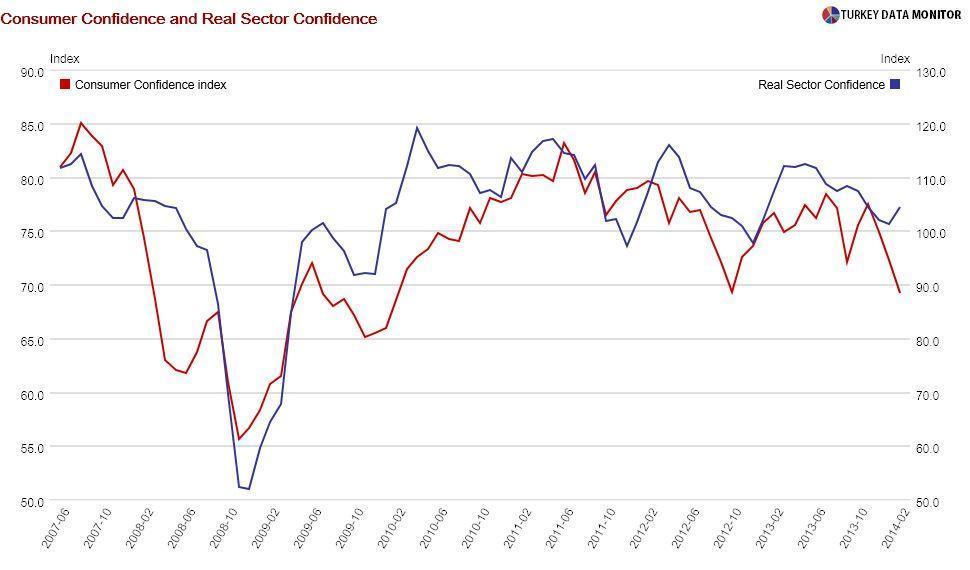Have Turkish political risks been priced in?
 Two of the three analysts interviewed by Wall Street Journal Turkey for an article with a similar title think so. Most of the investment professionals I have talked to this past week are of the same opinion.
Two of the three analysts interviewed by Wall Street Journal Turkey for an article with a similar title think so. Most of the investment professionals I have talked to this past week are of the same opinion.They may be believing that even the worst has been priced in. I could not disagree more. For one thing, if that were the case, why did the lira-dollar exchange rate jump after another telephone conversation alleged to be between Prime Minister Recep Tayyip Erdoğan and his son Bilal was leaked on Feb. 26?
This new one, where Erdoğan is allegedly telling Bilal not to accept less than the agreed amount from a businessman, and another between Erdoğan henchmen transporting money do not add much new to the original that was leaked on Feb. 25, where the PM, in a phone conversation right after the graft arrests on Dec. 17, tells his son to “zero” the money in his home.
But despite that, and regardless of whether they are genuine or not, the “tapes” are eroding investor confidence. And it seems more will be coming before the local elections on March 30. Even if people may eventually get used to these leaks, confidence will take a much bigger hit if they manage to decrease the ruling Justice and Development Party’s (AKP) votes.
I argued in a column, shortly after the graft scandal erupted, that in countries where corruption is prevalent, voters do not punish incumbents for bribery as long as the economy is doing well. But that is one big assumption. The confidence indices that were released this week are ringing alarm bells.
Consumer confidence fell further in February, hitting a four-year low.

Some analysts were upbeat on the rise in real sector confidence. However, the headline index edged up thanks to stocks, future employment and past orders. Fixed investment expenditures, future production, current orders and exports, which give a better idea about the current economic situation, all fell.
Even if the economy manages to hold on until the elections, Turkish voters may decide to punish corruption this time around. After all, they have never before seen something this big and with so much hard evidence. But polling company Sonar’s head, Hakan Bayrakçı, believes that the graft scandal may end up reducing the AKP’s votes just 2.5-4 percentage points, mainly because 80 percent of their voters do not use the Internet and have not listened to the tapes.
If the AKP’s votes, estimated to be 42.5 percent by Sonar, were to fall below 40 percent, chaos would reign supreme. I do not expect that. However, both the economy and the graft scandal could chip off a couple of percentage points from the AKP’s votes, which were probably around 50 percent before the graft scandal. This would be more than enough for the continuation of political turmoil, as it would mean that the presidency is not in the bag for Erdoğan.
I would definitely wait for the local elections before having the final say on whether political risks have been fully priced in.










